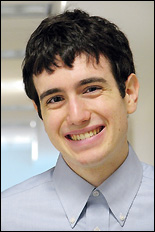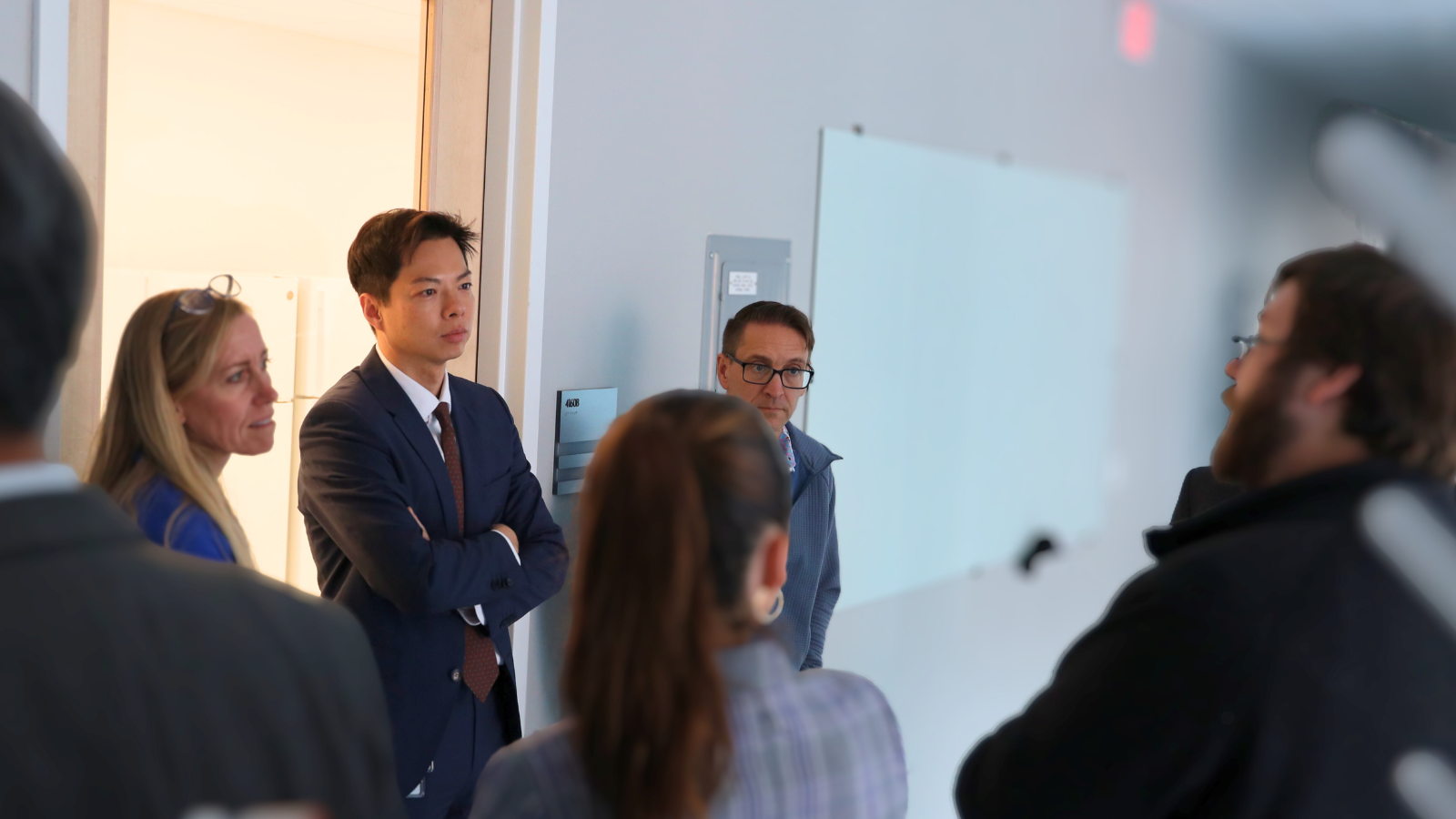News Story
BioE Freshmen Are Finalists in Bioethics Contest
Fischell Department of Bioengineering (BioE) freshmen Stevephen Hung and Zachary Russ have been selected as two of the five finalists in the Institute of Biological Engineering's (IBE) annual bioethics essay contest. Their work was chosen from a nationwide field of entries submitted by both undergraduate and graduate students. Hung and Russ will present their papers at IBE's annual conference this March, where the winners will be decided. The first-place essay will be considered for publication in the Journal of Biological Engineering, the official journal of the IBE.
Hung and Russ wrote their papers for BioE Professor Art Johnson in his Biology for Engineers class this fall. "I assigned the students to enter the contest," Johnson explained, "because I strongly believe that engineers need to be cognizant of the effects of their work. It's part of their responsibility to know where their efforts will lead in all possible directions…down-sides as well as up-sides."
Hung's essay, titled "The Bioethics of Bt Corn," discusses the ethical issues behind the production of genetically-modified crops. Bt corn (also called transgenic maize) is a grain named for the Bt (Bacillus thuringiensis) Delta Endotoxin gene it has been engineered to carry. It is capable of withstanding various types of destructive caterpillars that feed on corn plants because the gene produces a toxin fatal to them. The toxin, however, is very selective in its effectiveness and does not affect other kinds of insects, animals, fish, or people. Supporters of Bt corn cite higher yield, better resistance vs. other pesticides, and greater safety to animals and people among its advantages. Detractors have concerns about safety, caterpillars simply being diverted to different crops for sources of food, the rise of other pest populations to take the place of declining caterpillars, and the possibility that targeted insects will ultimately develop a resistance to the toxin.
Russ' essay, "Synthetic Biology: Enormous Possibility, Exaggerated Perils," discusses synthetic biology (synbio), a relatively new field in which scientists seek to create life "from scratch." Ethical concerns about synbio include whether it is appropriate for human beings to completely re-engineer an organism and create new forms of life, what might happen if these lifeforms interacted with naturally-occurring ones or were used for terrorism, and whether the field could be regulated. Proponents of synbio research, however, feel that it will make genetic engineering much easier, help us design more effective treatments for disease, and gain a better understanding of life and how biological systems function. Synthetic organisms capable of reducing pollutants, providing food, and producing energy could also benefit society.
"I am very proud of these two students," said Johnson, "Previous winners of the essay contest have been from some very good schools—Cornell University and UC Berkeley come to mind. The fact that we represent two of the five finalists, and that they are both freshmen from our young program, really puts the University of Maryland on the bioethics map.
"I myself have some misgivings about genetic manipulations and synthetic biology," Johnson continued, "but [Hung and Russ'] essays reflect a positive attitude. That is refreshing, and shows that our future bioengineers are prepared to handle the challenges that will inevitably come their way."
The IBE is a professional organization that promotes research and interest in biological engineering, education, professional standards, interaction between academia, industry and government, public awareness, and responsible use of biologically engineered products. To learn more, Visit the Institute of Biological Engineering web site »
Published January 11, 2008












